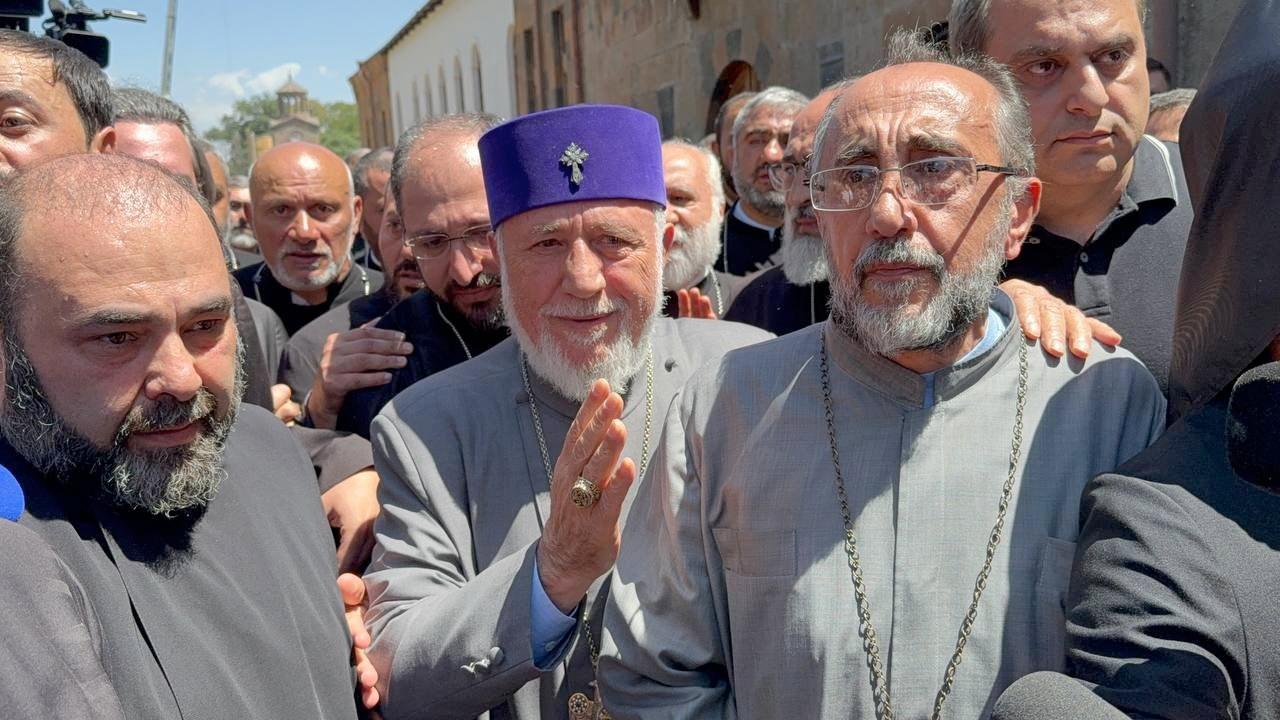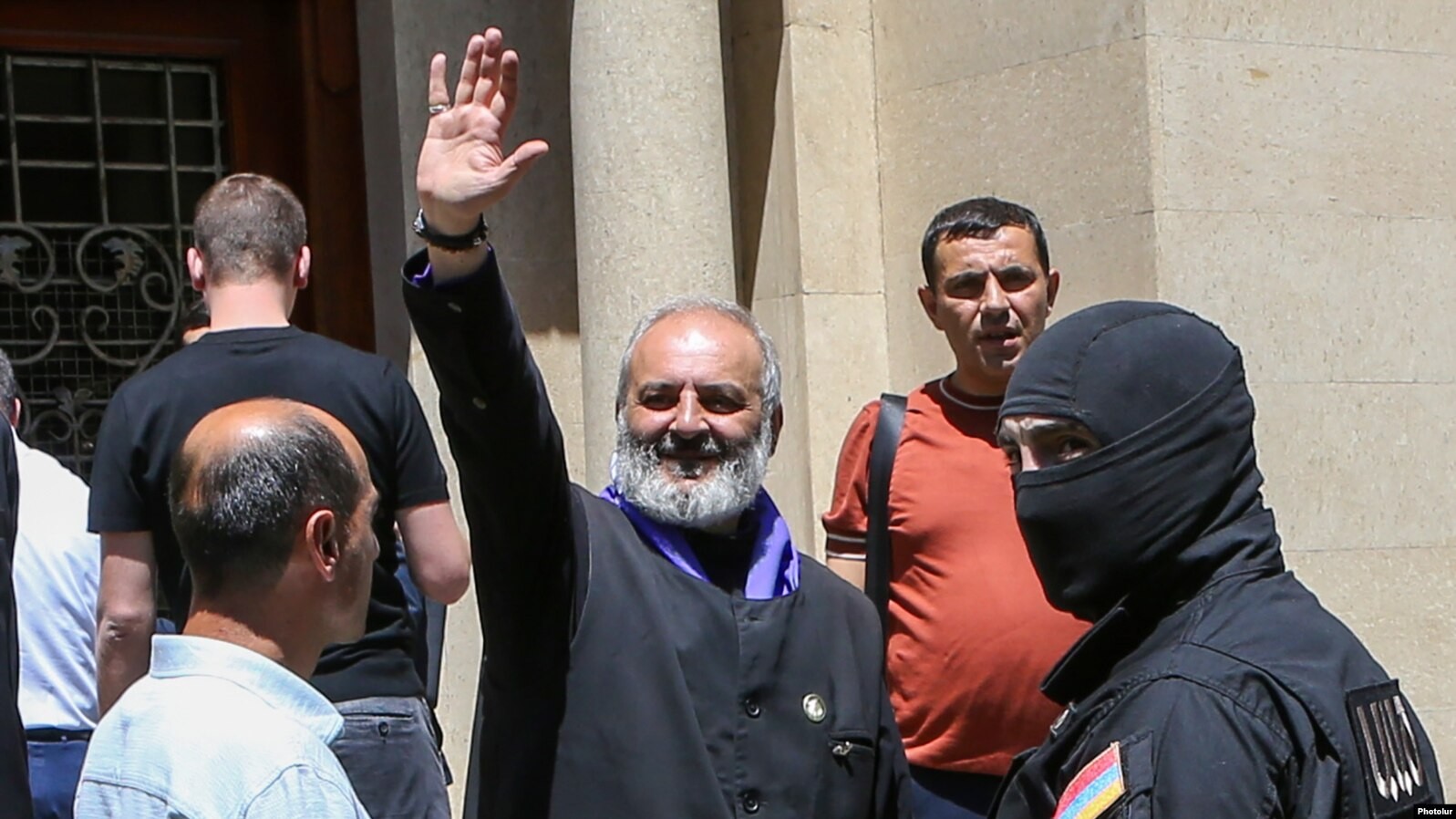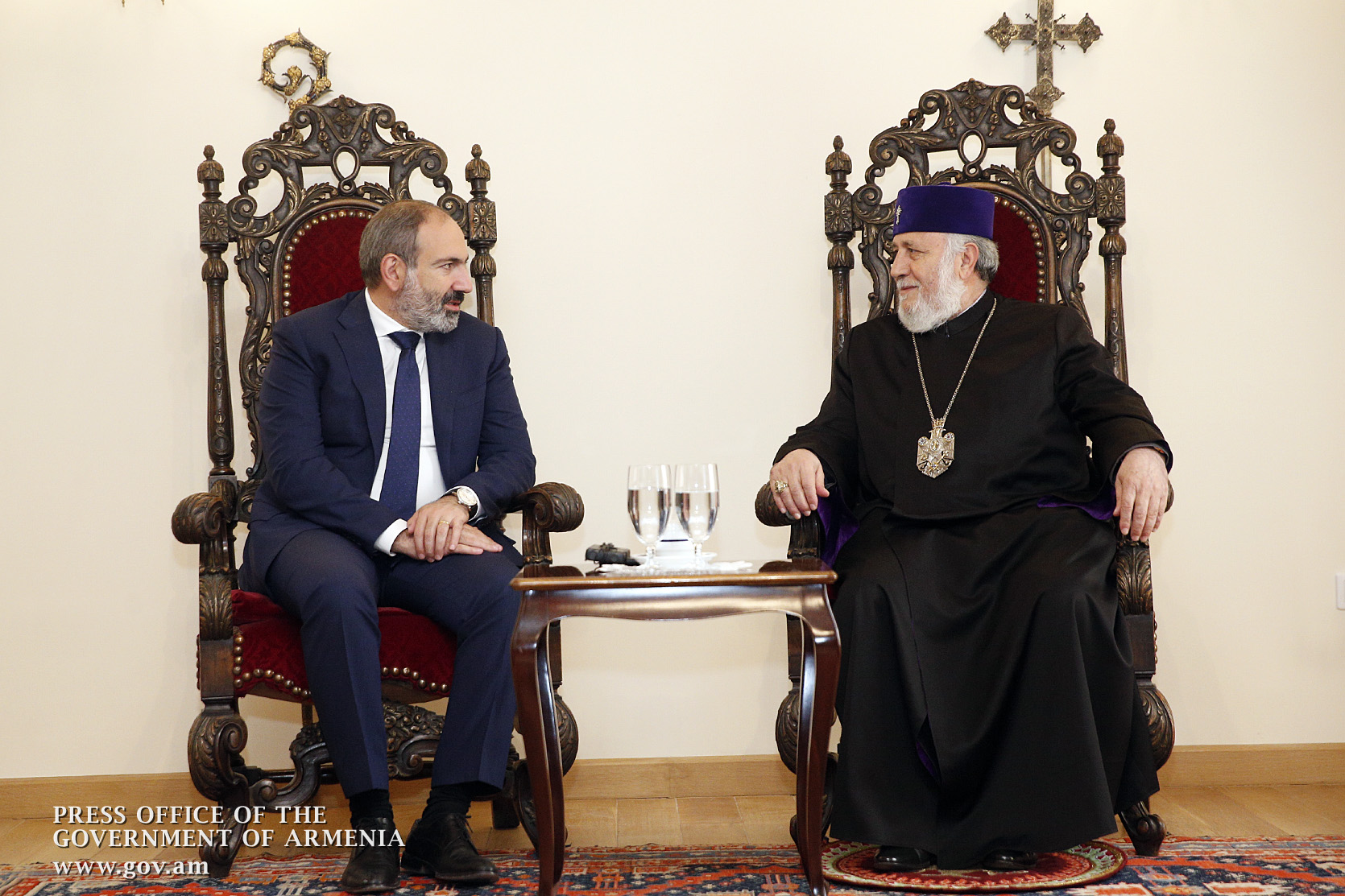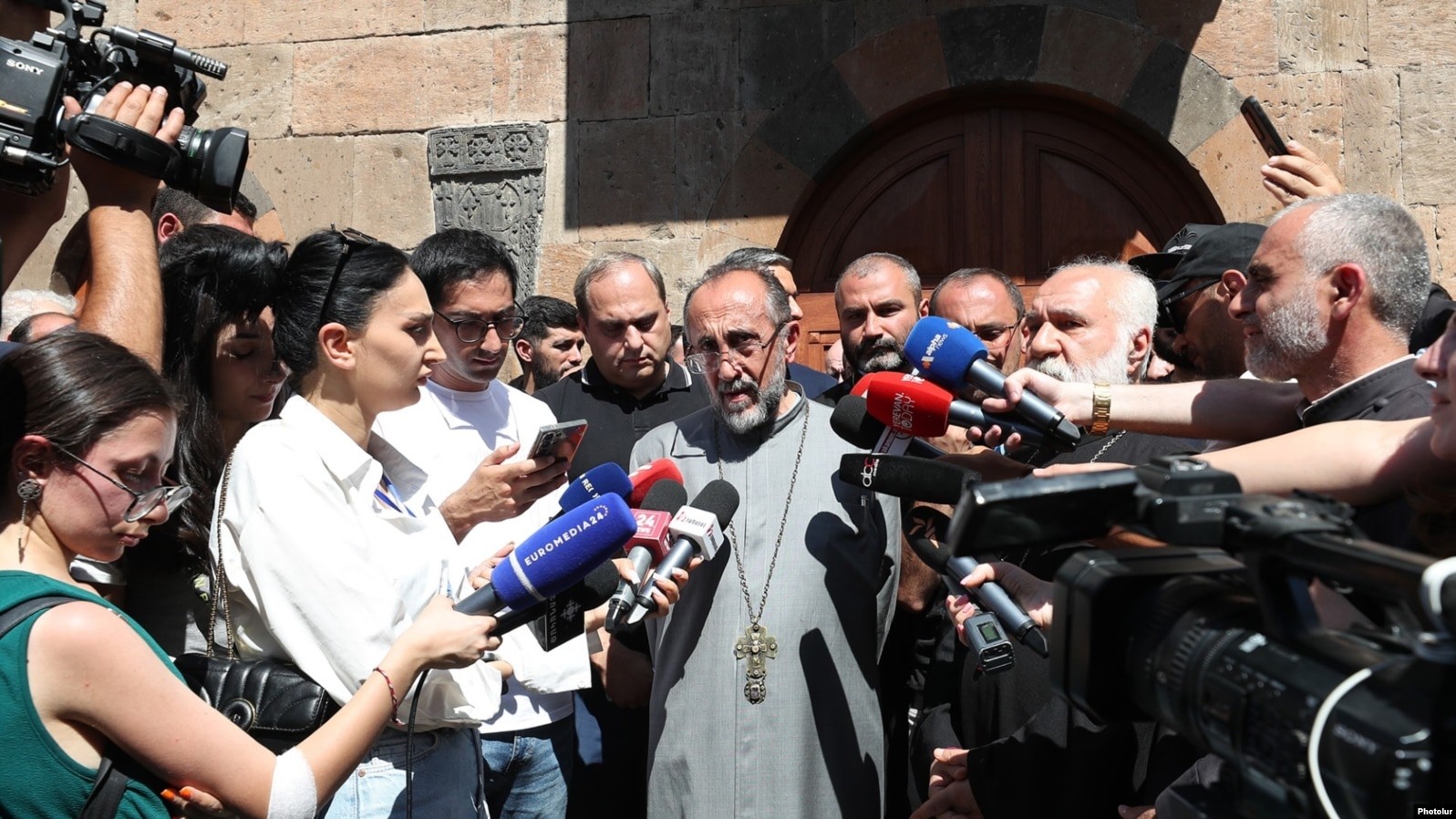Court convicts Armenian archbishop of incitement to seize power
Court convicts Armenian archbishop
The head of the Shirak Diocese of the Armenian Apostolic Church has been found guilty of incitement to seize power and will remain in custody. The court delivered its verdict at the end of the working day.
Archbishop Mikael Ajapahyan denied the charge, calling the case “an absurd, illegal and fabricated process.” His defence also dismissed the accusations as baseless. Lawyers argued that the court’s stance towards the cleric was discriminatory, driven by “political motives and a campaign against the church initiated by prime minister Nikol Pashinyan.” They had anticipated a guilty verdict.
“I expect the judge will find the archbishop guilty and then issue a ruling placing him under house arrest until the [parliamentary] elections in 2026,” lawyer Ara Zohrabyan said on the eve of the ruling.
Throughout the hearings, Ajapahyan’s defence team maintained that he never called for a seizure of power but merely “expressed his opinion while analysing the situation in the country.”
Article 422 of the criminal code provides for penalties ranging from a fine to five years in prison for publicly calling for the seizure of power. The severity of the punishment will be decided after additional hearings, the first of which is scheduled for 29 September.
Ajapahyan was arrested on 28 June. The previous day, law enforcement officers raided the diocesan headquarters. When they did not find him there, they went to the Mother See of Holy Etchmiadzin, the residence of the Catholicos. Ajapahyan was present but could not be detained after the church bells were rung and worshippers gathered to prevent his arrest. Later that day, he turned himself in to the Investigative Committee.
The archbishop’s arrest came amid worsening tensions between the government and senior clergy. Etchmiadzin condemned the move, calling it “a result of the prime minister’s anti-church policy and the hostility and hate speech directed at the clergy by senior officials.”
The trial proceeded at an accelerated pace, reaching its final stage in just a month after 10 hearings.
- Arrested Russian-Armenian businessman Samvel Karapetyan forms a political party
- Blackmail or message to Catholicos? Analysing Pashinyan’s social media posts
- Did Gyumri residents ‘reject’ Pashinyan? Municipal elections in Armenia’s second-largest city
Archbishop’s interview deemed a call to seize power
The criminal case was based on an interview given by the archbishop on 3 February 2024. He told journalists that there were three ways to change power: elections, a coup, and a popular uprising.
The cleric spoke of the need for a military coup and said he had discussed the issue with former presidents Serzh Sargsyan and Robert Kocharyan.
“I said, Mr President Kocharyan, you were president of Armenia for ten years and president of Karabakh for the same amount of time. Is there really not a single general in the army, police or national security service who would support you, share your ideology, stand by your side and carry out a coup?” Ajapahyan said.
Prosecutors initially said interview did not amount to a crime
In April last year, the NGO Union of Informed Citizens submitted a complaint to the prosecutor general’s office, arguing that Ajapahyan’s interview contained a call for a military coup. According to the organisation’s programme coordinator, Daniel Ioannisyan, prosecutors at the time decided there was no “action that could be given a justified legal assessment” warranting punishment.
“They refused us then, saying there was no criminal offence. Now they claim there is one. With this level of independence in the judiciary and law enforcement, you can’t get far. Criminal proceedings against Ajapahyan should have been launched at the time of the act, not now, when the government has begun targeting certain clerics,” Ioannisyan said in June after the archbishop’s arrest.
The public has also questioned how it was possible that months later the same statements were suddenly deemed criminal. Law enforcement bodies have responded that “what matters is when and in what situation a person makes such a statement.”
Investigative Committee chairman Artur Poghosyan noted that “the cleric repeated the call for a coup on 21 June 2025.” This happened against the backdrop of an exposed coup attempt and at a time when “the investigative body had information that some clergy were expected to be involved in the process.”
What punishment the law provides
Under Armenia’s criminal code, publicly calling for the seizure of power or the violent overthrow of the constitutional order — including through the media or communication technologies — is punishable by:
- a fine of 20 to 50 times the minimum wage;
- between 150 and 270 hours of community service;
- restriction of liberty for one to three years;
- imprisonment for one to two months;
- imprisonment for two to five years.
‘I am glad to be on trial’: the archbishop’s final word
In his closing statement, Archbishop Mikael Ajapahyan said there were questions left unanswered. He asked why the authorities had “remembered” his statements only in June this year, why they staged a “show” in Etchmiadzin, why they searched the Shirak Diocese without notifying him, and why the trial was taking place in Yerevan rather than Shirak province.
“Why were witnesses not questioned, including former presidents and the journalists [who interviewed me]?” he asked.
The cleric also noted that he had been criticised outside the courtroom for not apologising:
“Why don’t I say, forgive me, be lenient with me, I am old, I am sick, I have merits, I misspoke? Because everything I said was right. Everything I said was true. And there was no call [to seize power].”
He went further, stressing that for him it was “a great honour to be a defendant in this case.” Ajapahyan said he would not want to be in the place of the defence, the prosecution, or the authorities:
“They have nullified the achievements of my brothers in 1992–1994 and of those 18-year-old boys, my children, who sacrificed their lives in 2020 [referring to the Karabakh wars]. I am in the most advantageous position. I am happy to be on trial under these circumstances. To be a defendant under this government, and for political reasons, is nothing but an honour, a joy and a happiness.”
Court convicts Armenian archbishop






















